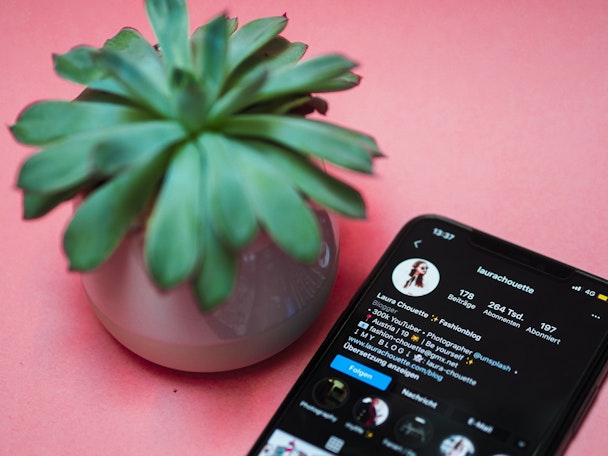How to recruit ambassadors to promote your brand (without alienating customers)
Zsofi Torok of agency Wilderness gives brands a lesson in meaningful partnerships, and how to avoid alienating loyal customers.

Brands shouldn’t risk working with unsuitable influencers at the expense of their existing customer base / Laura Chouette
The use of influencers has become a standard and almost essential way of promoting your brand and its products on social media. But the recent de-influencing trend happening on TikTok is just one of the many signs that people are no longer tolerating inauthentic displays of product promotion.
People are still interested in learning about different or new products, but they want influencers to put their money where their mouth is. It’s no longer enough for an influencer with a big following to flog your product as the best thing since sliced bread if no one actually believes them.
Users want to see authentic content from authentic people who talk about a brand or its product not simply because they are being compensated for doing so, but because they truly believe in it.
While #ad or #gifted disclosures may deter some of the more hard-line rejectors of influencer marketing, most people don’t care about them so long as they can trust that the content wasn’t motivated solely by monetary reasons.
So, who should you be choosing to not just promote, but to represent your brand in the digital world?
What defines meaningful?
More and more, people are looking for meaningful partnerships between brands and, not influencers, but content creators who may be sponsored for a set number of posts or are recruited as ‘brand ambassadors’.
But what is meant by ‘meaningful’? They want to see brands employ creators who are true fans and customers of the brand and whose behavior and thinking are in line with the brand’s values.
They expect creators to really use the products and share genuine reviews, including the good and the bad; the pros and the cons. In other words, they want to see real people sharing their real, uninfluenced opinions and recommendations for them to be believable.
And they want to see brands support these kinds of content creators instead of the ones who are making a living out of always recommending different brands.
Choosing influencers who aren’t perceived as authentic or a good representative of your brand or values can have significant negative effects on your brand sentiments, word-of-mouth and even customer numbers. This is even more pertinent if you operate within a niche market.
Advertisement
How to lose customers
A niche market brand recently announced its new brand ambassadors after a month-long search. They asked people to apply with a video on social media where they had to show why they are a fan and why they are the perfect candidate for representing the brand.
One of the many asks from the brand was that applicants should not have any affiliation with competing brands. The brand’s customer base was excited by this opportunity but was soon disappointed and angry when the new ambassadors were revealed.
One customer had been talking about the benefits of the brand’s products out of experience to their small following for years. The new brand ambassadors, however, all had large followings and were respected as influencers in this specific niche market. None of these influencers uploaded an application video and not only had the brand never featured in their posts previously – and they had been promoting competitor brands before and after their brand ambassador appointment. The brand’s followers felt like they were used for free publicity and felt deceived, now thinking they never stood a chance at being an ambassador.
Negative opinions of the brand were posted, discussed and reshared through word-of-mouth. Many of the most loyal customers even proclaimed that, from now on, they’d be boycotting the brand due to their questionable judgment.
So, where did all of this leave the brand? Yes, it may have a number of high-profile influencers who can tell their followers about the products, but they are now seen as less authentic. The brand is now stuck with them until the end of their contract, presumably, and has to endure the loss of numerous loyal customers as well as the negative brand reputation that will linger on for longer than they’d like.
Start small
The above example perfectly highlights how social media users care deeply about brands acting in line with their values and their preference for real people and real experiences.
That’s not to say you shouldn’t use high-profile influencers at all to reach as many potential customers as you can, but it pays to also have brand ambassadors or partner with content creators who might not be the flashiest on paper.
So, do you have any followers who are loyal customers, have been featuring and recommending your products, post high-quality content and have a nice, if small, community of potential customers? Reach out to them and discuss opportunities for collaboration; you won’t find a more authentic and more effective influencer for your brand.
Content by The Drum Network member:

Wilderness
The World's First Social Media Transformation Agency. We transform the strategy, management, and operations of the world’s most beloved brands. Part of the...
Find out more
